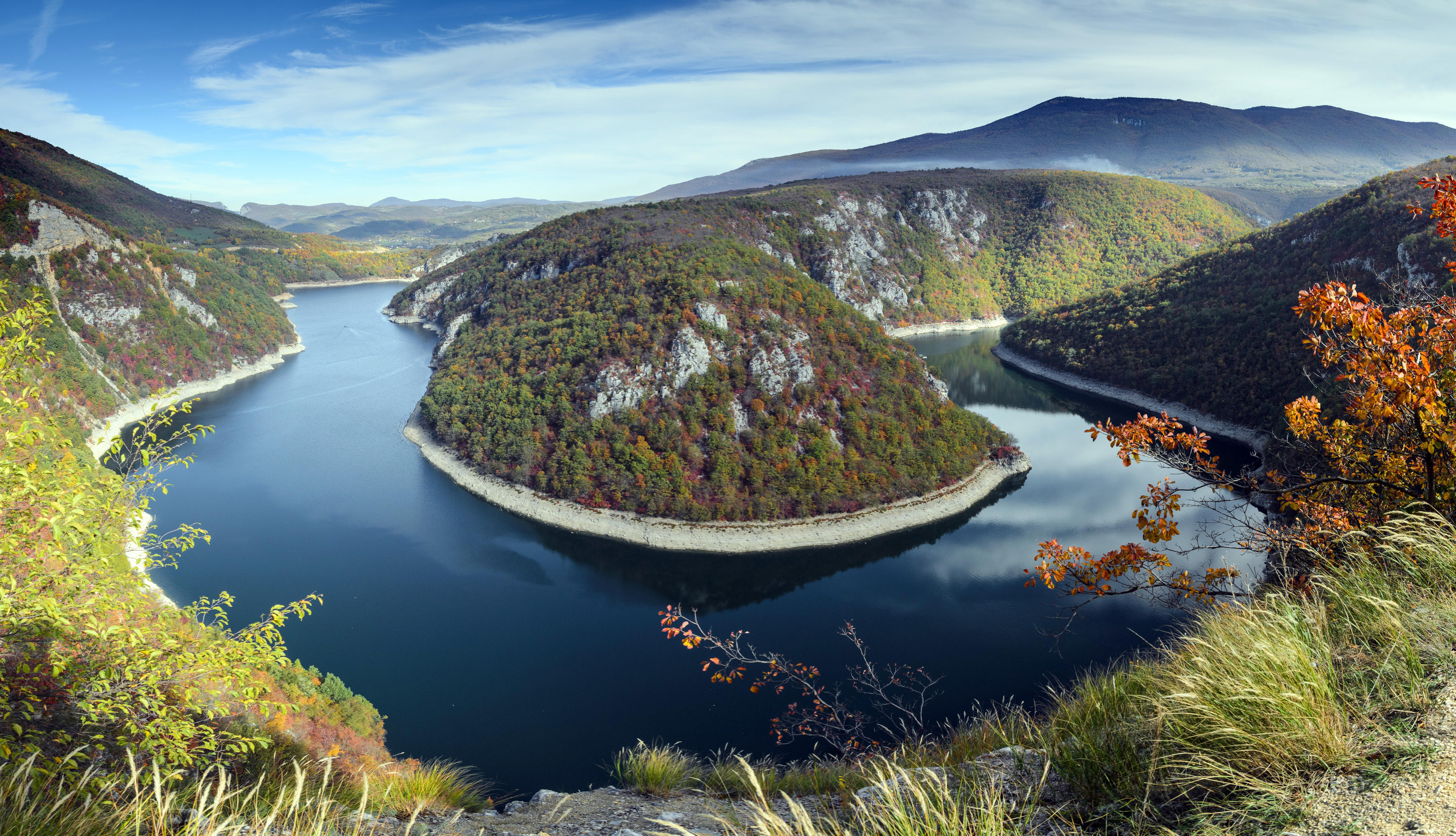View of Sarajevo at sunset
Copyright© G Travels, via flickr, CC BY-NC 2.0
Bosnia and Herzegovina
It was only the intervention of the UN and NATO that put an end to hostilities. In November 1995, the warring factions agreed to accept the Dayton Peace Agreement, which was drawn up with the help of the European Union and the USA. The Peace Agreement also laid down the constitution for the country.
Since then, Bosnia and Herzegovina has consisted of two autonomous regions or “entities”: the Federation of Bosnia and Herzegovina and Republika Srpska. A third region, the border area around the city of Brčko, was accorded special status as a separate district. The different parts of the country share a common central government, but it has only very limited powers.
Since summer 2021, Milorad Dodik – the Bosnian Serb member of the country’s three-person presidency – has been pushing for the withdrawal of Republika Srpska from national institutions and thus the secession of the region. The obstructionism within the presidency, the Council of Ministers and the parliament is hindering urgently necessary reforms, and the conflict potential in the country is rising.
The Federal Ministry for Economic Cooperation and Development (BMZ) has taken steps in response to the current developments and has suspended preparations for four infrastructure projects in Republika Srpska until all efforts at secession have been withdrawn.
Germany’s relations with Bosnia and Herzegovina
Germany and Bosnia and Herzegovina have close political, economic and cultural relations. Germany is one of the largest bilateral donors to Bosnia and Herzegovina and one of its most important foreign policy partners and supporters within the European Union. The close cooperation with Germany has helped to promote economic and social reform processes and advance the country’s rapprochement with the EU. The Stabilisation and Association Agreement with the EU entered into force in 2015, and Bosnia and Herzegovina officially applied for accession to the EU in 2016.
German development cooperation with Bosnia and Herzegovina
Bosnia and Herzegovina is a transformation partner for German development cooperation. Through this form of partnership, the Federal Republic of Germany is channelling targeted support for political and economic transformation in the EU neighbourhood.
Talks between representatives of the Government of Bosnia and Herzegovina and the BMZ were originally planned for November 2018, but had to be postponed several times – initially due to elections and difficulties forming a government in Bosnia and Herzegovina, and later as a result of the COVID-19 pandemic. In a departure from the regular timetable of talks, working discussions took place in 2021 to prepare for government negotiations. Germany committed funding in the amount of 49.5 million euros, among other things to bolster efforts to overcome the COVID-19 crisis and adapt to climate change. From 2022 onwards, government negotiations will take place at agreed two-year intervals.
Germany’s development cooperation with Bosnia and Herzegovina focuses on the following core areas:
- Climate and energy, just transition
- Sustainable economic development, training and employment
In April 2022, the then Development Minister Svenja Schulze took steps in response to the current developments and nationalist politics of the Bosnian Serb leadership. The BMZ has suspended preparations for four infrastructure projects in Republika Srpska worth 105 million euros until all decisions and measures aimed at secession have been withdrawn.
SDG trends for Bosnia and Herzegovina
- On track or maintaining SDG achievement
- Moderately improving
- Stagnating
- Decreasing
- Trend information unavailable























